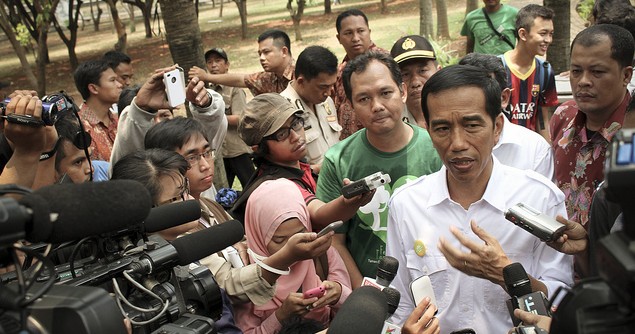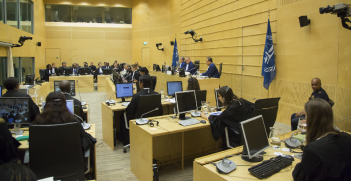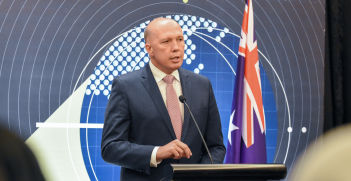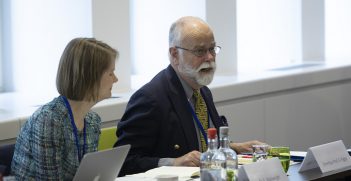Australia and Indonesia: Hard Times Ahead

The executions of Andrew Chan and Myuran Sukumaran will leave most Australians dismayed by President Jokowi’s refusal of clemency, angered by the clumsy, ugly executions process and jaundiced by the attitudes of a number of Indonesians on killing two of our countrymen. In this article, AIIA National President John McCarthy argues against the withdrawal of the Australian ambassador from Jakarta.
This latest downturn with Indonesia will make us reflect—again—on what we should do. Make no mistake, it will deeply affect Australian perceptions of Jokowi through the rest of his tenure, and more widely, of Indonesia for years to come.
Don’t blame the Australian Government. It tried its best to save its nationals. We have often made mistakes with Indonesia; this time, however, Indonesia got it wrong.
Don’t see the executions as primarily an Australia–Indonesia issue, either. By year’s end, Jokowi would have overseen a significant number of executions. Two involve Australians. We need perspective.
But Indonesia dismissed our representations and we have no choice but to react with uncompromising displeasure. We should withhold bilateral visits by ministers while executions continue or for the rest of the year. We can’t have high-level business as usual.
That said, we shouldn’t compromise our own interests to the extent of jeopardising the web of civilian and military exchanges that are at the heart of the relationship, or cut our aid program in response to the executions—intended to improve the lives of ordinary Indonesians. We should keep our Ambassador in Jakarta because communication matters.
Our longer term challenge requires two shifts in our approach towards Indonesia.
First, our country—amongst others—often sees diplomacy in terms of relationships. Wrong. It’s about interests.
In recent decades we’ve framed our dealings with Indonesia within various forms of ’special relationship’ only to see our interests suffer when illusions shatter.
Our political class and external policy establishment must develop a mindset that dealing with Indonesia is a management task as much as a political one—keeping things stable and pushing our interests through unglamorous grunt work—part of which involves accommodating, where appropriate, Indonesian interests. But interests must be the basis of our relationship, not the reverse.
Second, we have to recognise that the Australian foreign policy challenge is different to that of most Western democracies. With the exception of New Zealand, our neighbours have different political systems and traditions, levels of development and postcolonial experiences from our own. This cultural gap is most salient with Indonesia. It impedes stability in our dealings. Australians see Indonesians as callous, militaristic and corrupt. Indonesians see Australians as insensitive and condescending. Politicians in each country react to their own national prejudices in their dealings with the other. And so it continues.
This isn’t a new problem for us. To lessen it, we must take a bipartisan path, which will require Australians to understand Indonesia and Asia more widely through education and practical exposure, and build the people-to-people and institutional relationships which encourage equilibrium in our international dealings. In the past we have gone enthusiastically down these paths only to be stalled by lethargy and partisan bickering.
Understandably, Australians can wonder whether Indonesia really matters or is worth the trouble. It does and it is. Indonesia straddles many of our northern approaches. It is the prime mover within ASEAN. It will play a role in the ongoing evolution of new power structures in the Asia–Pacific. Its policies on terrorism and transnational crime impact directly on us. Its size and growth mean that it will soon be the dominant economy in Southeast Asia. We mustn’t allow anger or disappointment to cloud our judgement.
This is particularly important because managing the relationship with Indonesia may become harder still.
Since the sixties, we have dealt with two long-term, stable regimes in Indonesia: Suharto’s and Yudhoyono’s (SBY). We had our difficulties with Suharto—not least over Timor—but his strength meant a certain, if sometimes unwelcome, reliability. SBY took us seriously. Habibie, Gus Dur and Megawati all demonstrated pluses and minuses but listened to what Australia had to say.
Jokowi has a weak domestic base which in any country cuts across sound foreign policy. His world view seems to be shaped by the need to attract investment from big players like China, Japan and the United States—complemented by some outdated non-aligned perspectives.
We may now be entering a period in our dealings with Indonesia which is less sure than the Suharto era, less positive than the Yudhoyono years and lacking the ease of communication which we enjoyed with Habibie, Gus Dur and Megawati. It will require lowering expectations, and greater persistence and patience.
During the Timor period, Indonesians of good will—of which there are many—used to say ‘neither of us can choose our neighbours, but we have to coexist’. It’s not euphoric advice, but they may be right.
John McCarthy is National President of the Australia Institute of International Affairs and former Australian ambassador to Indonesia. This article was originally published in The Strategist on 29 April 2015. It is republished with permission.





